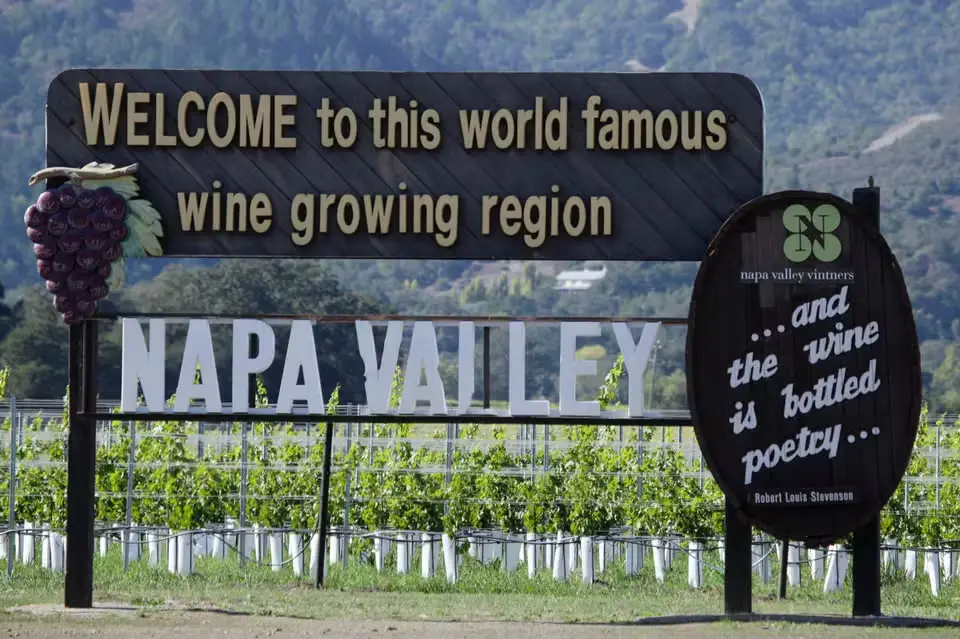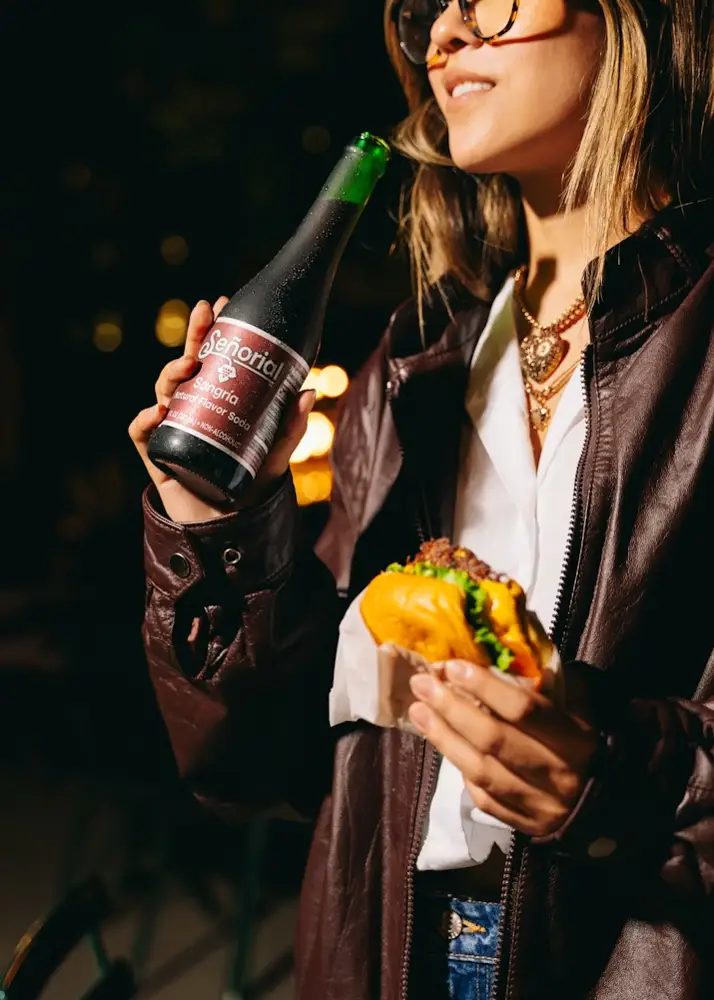Top 10 Natural Wine Producers to Know for Natural Wine Beginners
Natural wine is an undeniable trend. From Paris to New York, from Amsterdam to Tokyo, the idea of artisanal, minimal intervention captures the discerning palates of the sommeliers and wine consumers. Protagonists believe it's the true, authentic way of making wine, allowing the wine to express itself. Skeptists frown as soon as they detect a hint of “funkiness” in natural wine.
Regardless, if you are new to natural wine, there are some well-recognized natural wine producers to consider as a starting point to familiarize yourself with natural winemaking.
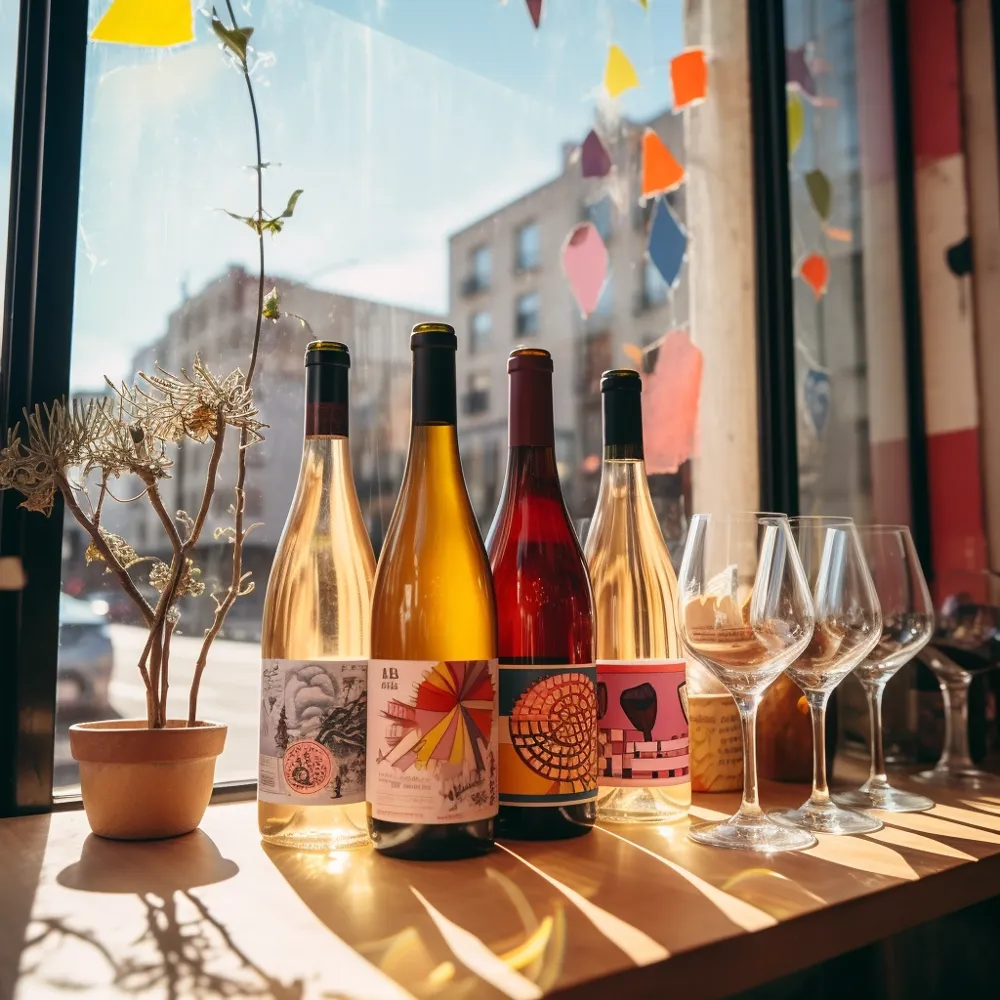
Jean-Francois Ganevat: Maestro of the Jura
Jean-François Ganevat, the maverick winemaker who returned to the Jura in 1998 after spending years in Chassagne-Montrachet under the tutelage of Jean-Marc Morey, not only embraces the spirit of natural wines but embodies it. He was influenced by luminaries such as Philippe Pacalet and eventually mastered organic and biodynamic practices. By 2006, he had delved into sulfur-free winemaking, creating 100% natural wines.
Ganevat, known as the "alchemist of grape varieties" or simply "Fanfan" in close circles, pursues perfection through strict parcel selections. His low-yield, vine-focused method produces wines of unmatched expression. Chardonnay, Savagnin, and the indigenous red variety Trousseau, are concentrated, delicate marvels that exemplify his unwavering commitment to excellence.
Now, the wines of Jean-François Ganevat are among the most sought after in the Jura region. They serve as a textbook to discover the pure terroir of the French Alps and the indigenous varieties.
Philippe Pacalet: The Natural Expression of Burgundy
For most people searching for natural wine, Burgundy is probably not the place to start. In fact, Burgundy has several talented winemakers who embrace a minimal intervention approach to winemaking, and Philippe Pacalet is one of them.
Pacalet's early days were shaped by his uncle Marcel Lapierre and mentor Jules Chauvet, both of whom inspired him to pursue natural winemaking. He later honed his skills alongside Domaine de la Romanée-Conti's co-director, Henry-Frédéric Roch at Prieuré-Roch, before establishing his own winery in 2001.
Pacalet meticulously curates vineyard plots across diverse appellations, championing the health of vines and natural yeast populations in chemical-free, biodiverse soils. In the cellar, he adopts a patient approach, allowing the native yeasts to work their magic without the use of chemicals or intrusive methods. Pacalet's rigorous processes, which include whole-bunch fermentations and sulfite-free élevage, result in wines with profound aromatic complexity, blending rich flavors with outstanding drinkability.
Domaine Matassa: The Outlier of Languedoc Roussillon
Domaine Matassa stands out as one of the most original and unconventional wineries in the South of France. Founded by Tom Lubbe, a native of New Zealand, the domaine emerged as a culmination of Tom's journey—from his apprenticeship at South Africa's Welgemeend to a pivotal stint with Gerard Gauby in the late 1990s.
Nestled in Calce since 2001, the domain now spans over 15 hectares of small plots featuring old vines of Carignan, Grenache, Maccabeu, and Muscat. Tom's unwavering commitment to biodynamic practices and an early harvest approach yields delicate wines distinguished by low alcohol content.
In stark contrast to the bold and robust profile of most wines in Roussillon, Tom's creations exhibit finesse, with floral notes of rose, peony, and subtle spices, framed by the flavors of juicy, crunchy red fruits. The audaciously delicate tannins provide structure, rendering Matassa's wines both thirst-quenching and profound.
Marcel Lapierre: The Pioneer of Beaujolais
The Lapierre family has been making wine since the early 20th century. Marcel Lapierre, the third-generation winemaker of the family and a pioneer in biodynamic viticulture and natural wine in the Beaujolais region, took over in 1973. Marcel found inspiration in a fortuitous encounter with Jules Chauvet, now considered the godfather of French natural wine. In 1981, Marcel began the conversion to a more authentic way of winemaking, adopting biodynamic farming practices, avoiding conventional additives, relying on indigenous yeasts, and eliminating sulfur.
Since Marcel's passing in 2010, his children, Mathieu and Camille, have carried on the heritage, continuing to craft authentic, living wine true to the terroir. Lapierre's Morgon, a beautiful introduction to natural wine, captures the essence of the Gamy grape, featuring red fruit, floral and spicy notes, balanced by bright acidity—a gourmet journey into the heart of the Beaujolais region.
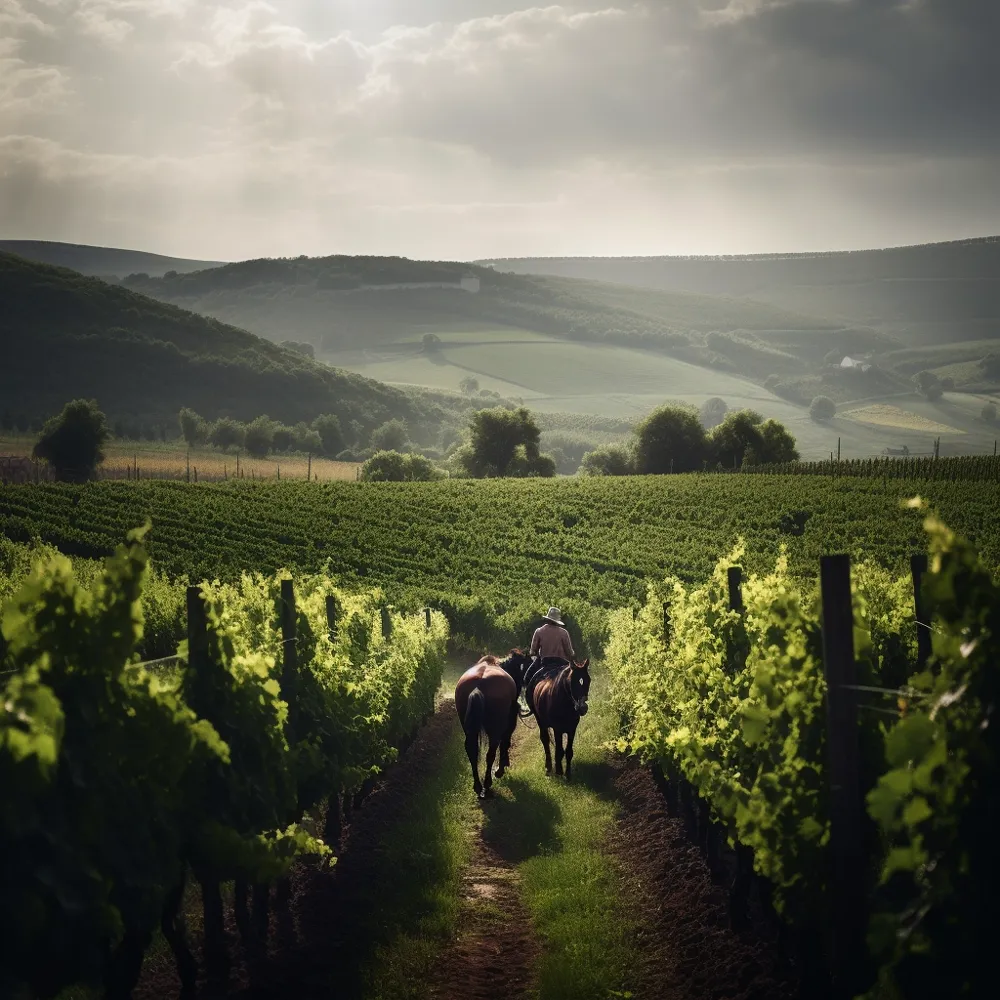
Radikon: The Textbook Orange Wine
Radikon Winery, situated in the village of Oslavje near the Slovenian border in Northeast Italy, is renowned for crafting superb skin-contact wines from indigenous grapes that have garnered international acclaim. The winery was established by Stanko Radikon in 1976 with the vines planted by his grandfather, and later he revived the ancient winemaking approach of prolonged skin maceration with minimal intervention.
Following Stanko's passing in 2016, his son Saša, a talented winemaker with an oenology degree, expanded the estate while upholding his father's dedication to skin-contact wines. Crafted from indigenous varietals from the region like Ribolla Gialla, Pinot Grigio, and Malsavisa, and undergoing extensive maceration and maturation in oak barrels, Radikon wines boast intense flavors, firm structure, and impressive aging potential, epitomizing the excellence of orange wines.
Foradori: The Purity of the Dolomites
Azienda Agricola Foradori, situated in the stunning Dolomite Mountains of Trentino, Italy, is a tribute to Elisabetta Foradori's vision and passion, establishing her as one of the world's most influential female winemakers. Taking charge of the family winery at the age of 20 in 1984, Elisabetta embarked on a journey that would reshape the landscape of Italian wine.
Deeply committed to connecting with the land and its terroir, she began practicing biodynamics in 2002 and gained certification in 2009. Notably, she revitalized the Teroldego grape through mass selection. The Foradori legacy endures under the stewardship of her son, Emilio, who manages the winery.
Foradori's wines, fermented with indigenous yeasts, beautifully capture the essence of the Dolomites. Emilio's meticulous winemaking, employing large-format oak and amphora, highlights the region's terroir and the pure expression of indigenous grape varieties.
Frank Cornelissen: The Radical Etna Visionary
Frank Cornelissen, a Belgian wine broker turned vigneron, defied convention by establishing his winery on the northern slopes of Mount Etna in Sicily in 2001, long before the region achieved its current fame. As a pioneer in the Etna wine scene, he cares deeply for old vines, particularly the indigenous Nerello Mascalse on the northern slopes. His dedication to the land is unshakable, as evidenced by his use of organic methods and experiments with biodynamic techniques.
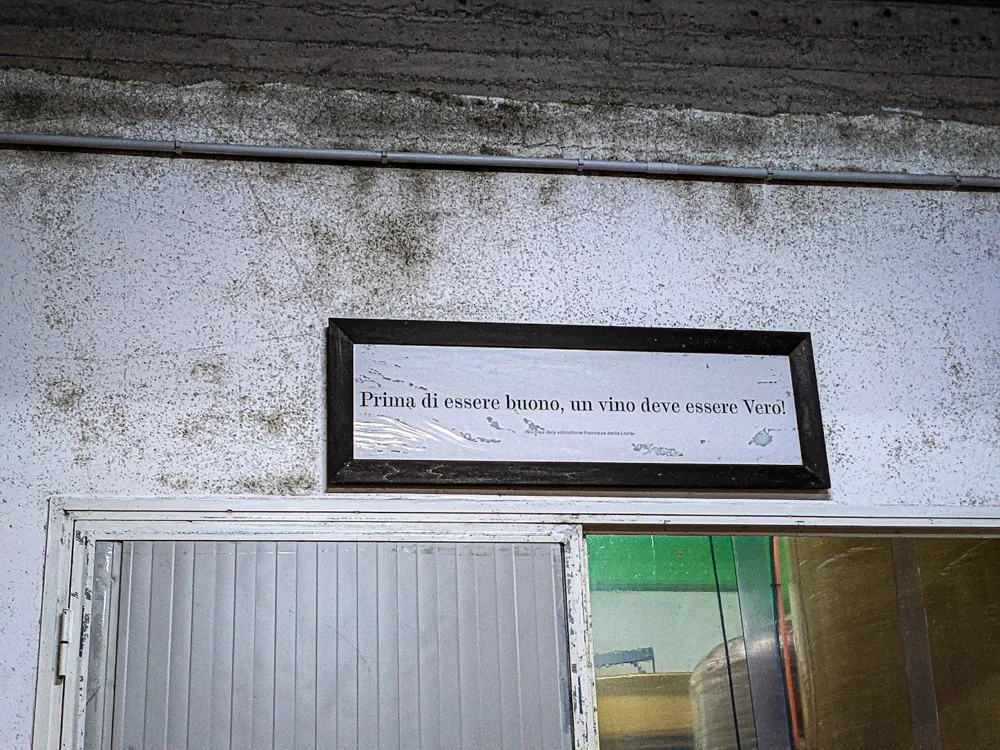
Cornelissen's cellar strategy is absolutely unique and radical: he uses neutral fiberglass tanks instead of traditional wooden barrels and avoids adding sulfur, enabling the grape's pure essence and the terroir's authenticity to shine through. Crafting varied labels from single vineyard parcels across Etna's Contradas, his wines are a true expression of terroir, offering lively complexity and a distinct minerality from the volcanic soil.
Partida Creus: The Revival of Catalonia's Indigenous Varieties
One of the most well-known wineries in Penedes, Catalonia, the Spanish natural wine capital, is Partida Creus. In 2007, Italian architects Antonella and Massimo abandoned the bustling streets of Barcelona for this serene haven, discovering abandoned vineyards and a rich tapestry of forgotten local grape varieties. These once-forgotten vines are given new life by their dedication to organic cultivation and natural winemaking, embodying the Slow Food philosophy of protecting viticultural heritage and honoring the environment.
Their emphasis on quality rather than quantity is highlighted by manual, artisanal, and biodynamic farming practices. In the cellar, grapes undergo skin and stem maceration, fermenting with native yeasts. No chemical treatments disrupt the rhythm dictated by biodynamic cycles and lunar phases. The resulting wines, marked by their distinctive labels, narrate the Mediterranean tale with vibrancy and lushness.
Gut Oggau: Austrian Natural Wine with Personality
As the most famous natural wine producer in Austria, Gut Oggau is situated in the small village of Oggau in Burgenland. Eduard and Stephanie Tscheppe founded the estate in 2007, and after being shuttered for twenty years, the 17th-century winery was painstakingly restored.
The foundation for their business was laid by Eduard's experience in winemaking and Stephanie's family's ownership of the Michelin-starred Taubenkobel restaurant. The 20-year disregard for the vines turned out to be fortunate, as it made it possible for them to start immediately on a biodynamic journey and obtain complete Demeter certification.
Gut Oggau stands out not only for its superb wines but also for the family-inspired philosophy that lives on in each bottle. The labels, which feature faces drawn by artist Jung von Matt, reflect the individual personality within. Gut Oggau's wines are predominantly field blends, featuring the typical grape varieties from the region: Blaufrankish, Zweigelt, Grüner Veltliner, Welchriesling, Weissburgunder, and Gewurtzraminer.
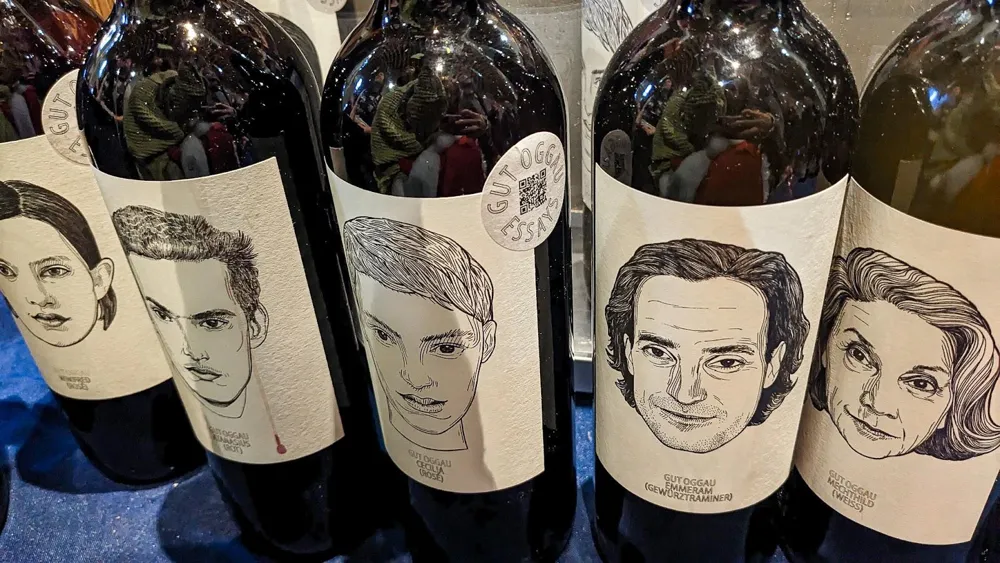
Milan Nestarec: Moravian Maverick
Milan Nestarec is the rockstar of natural wines in the Czech Republic. In 2001, Milan took the reins of his father's 8-hectare estate in Velké Bílovice, just a stone's throw from the Austrian border. Raised amidst the vines since childhood, he seamlessly blended tradition with innovation when he transitioned to organic farming and adopted a minimal-intervention winemaking approach. Nestarec's commitment to natural winemaking is evident in every bottle – from using indigenous yeasts to minimal sulfites, allowing the terroir of South Moravia to shine through. The wines are full of life, vibrancy, and a distinctive charm, rapidly gaining global acclaim. Milan Nestarec's creations are a breath of fresh air, redirecting the spotlight to the exceptional wines emerging from this corner of the world.
As you start on your journey into the realm of natural wine, you will quickly realize it's not merely a trend, a quest for funkiness, or a marketing scheme. Serious and dedicated winemakers embrace this approach to craft authentic, terroir-driven wines. Their commitment to organic and biodynamic practices, along with the use of native yeasts and minimal intervention, allows the terroir to resonate in every bottle. So, for all you VinoVossers who are curious about natural wine but unsure where to begin, these producers serve as an excellent starting point, guiding you to explore the captivating world of natural wines.
Sylvia Ba
